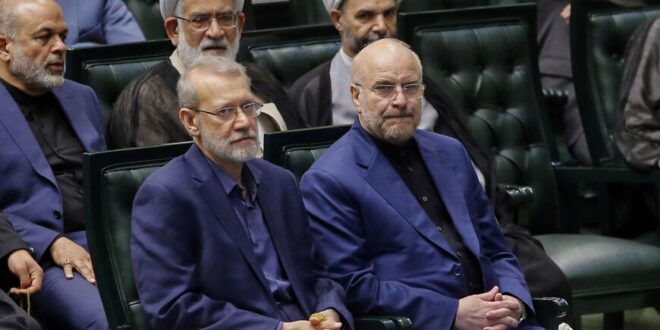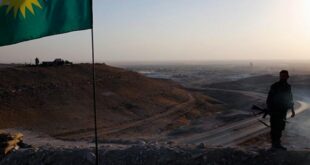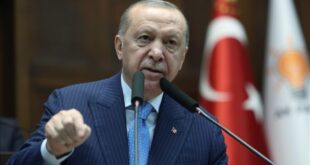Iran’s electoral Guardian Council has approved the candidacy of six political figures for the snap elections that follow the death of Ebrahim Raisi, rejecting dozens of other potential candidates.
Iran’s Interior Ministry announced Sunday the final list of candidates for the upcoming presidential elections that was approved by the hard-line Guardian Council.
The snap elections, slated for June 28, come following the sudden death of President Ebrahim Raisi in a helicopter crash last month. The incident, which occurred in Iran’s East Azerbaijan province, also killed Foreign Minister Hossein Amir-Abdollahian and six other officials.
According to the constitution, First Vice President Mohammad Mokhber was appointed as acting president.
The Guardian Council, a 12-member election supervisory body, approved the names of six people, all male, out of 74 who had submitted their candidacies in the past weeks. Among the most prominent disqualified candidates were former populist President Mahmoud Ahmadinejad and former parliamentary Speaker Ali Larijani, who is considered a moderate and a Reformist.
The council comprises six jurist members directly appointed by Supreme Leader Ayatollah Ali Khamenei and six others elected by the parliament. The body is notorious for its mass disqualification of candidates in previous elections, including Reformists and women. In the last presidential vote held in 2021, a total of 585 candidates, including 40 women, were barred from running.
One of the main criteria stipulated by the Iranian Law on the Presidential Election for a candidate is that they have to be well-known religious and political personalities.
The Guardian Council, a vetting body, disqualified the majority of presidential candidates, leaving 6 to run in Iran's election on June 28.
۰ Mohammad Bagher Ghalibaf
۰ Saeed Jalili
۰ Masoud Pezeshkian
۰ Mostafa Pourmohammadi
۰ Amirhossein Ghazizadeh Hashemi
۰ Alireza Zakani pic.twitter.com/eOyDTeFvG5
— Holly Dagres (@hdagres) June 10, 2024Below is a list of the six presidential contenders.
Mohammad Bagher Qalibaf
Mohammad Bagher Qalibaf, 62, is Iran’s current parliament speaker. He served as mayor of Tehran from 2005 to 2017 and before that as chief of the Iranian police from 2000 to 2005.
Qalibaf was also appointed commander of the air force of Iran’s Islamic Revolutionary Guard Corps (IRGC) in 1997, a position he held until 2000. Qalibaf is accused of being involved in violent crackdowns against protesters during his tenure in these positions.
The New York-based Center for Human Rights in Iran revealed back in 2013 that it had obtained audio recordings in which Qalibaf details and praises his role in violent repression campaigns against student protest movements in Iran in 1999 and 2003, and against the 2009 protests.
Qalibaf ran for president twice in 2005 and 2013 and lost, and again in 2017, when he withdrew in favor of Raisi.
Saeed Jalili
Saeed Jalili, a close ally of Khamenei, was among the first who registered for the elections in late May. He ran and lost in the 2013 presidential elections and withdrew in 2021 in favor of Raisi.
Known for his hard-line stances, Jalili, 58, led the negotiations with Western states over Iran’s nuclear program from 2007 to 2013. He has repeatedly opposed the 2015 nuclear agreement — known as the Joint Comprehensive Plan of Action — which moderate then-President Hassan Rouhani struck with world powers, including the United States. The landmark accord involved the lifting of Western sanctions on Iran in exchange for Tehran placing significant restrictions on its nuclear program. Under US President Donald Trump, Washington withdrew from the pact in 2018, and Iran has since developed uranium to weapons-grade levels, sparking international alarm.
Between 2007 and 2013, Jalili also served as the secretary of the supreme leader to the Supreme National Security Council. The council is mainly tasked with determining the defense and national security policies, ensuring the alignment of domestic policies with national security policies, and mobilizing the country’s material and intellectual resources to defend Iran against internal and external threats, according to the constitution.
Jalili is currently a member of the Expediency Discernment Council, an advisory body appointed by the supreme leader to settle disputes between Iran’s parliament and the Guardian Council.
Alireza Zakani
Alireza Zakani, 58, has been Tehran’s mayor since 2021. He was a member of parliament from 2004 to 2016, and again from 2020 to 2021.
Zakani announced his bid to run in the 2013 and 2017 presidential elections, and was disqualified both times. In 2021, he ran for elections but eventually withdrew in support of Raisi.
Known as an ultra-conservative, Zakani has repeatedly called for gender segregation and promoted hard-line Islamic views. He was allegedly involved in the repression against the student protests and the more recent anti-regime demonstrations in 2022.
According to Spreading Justice, a database of human rights violations in Iran, Zakani is accused of grave rights violations. As commander of the Student Basij Organization, he allegedly oversaw the beating and injuring of students during the 1999 student protest at Tehran University.
In April 2023, Zakani introduced a “hijab and chastity plan” for the municipality of Tehran, under which a municipal security unit was created to prevent unveiled women from entering metro stations in the city.
At the time, Zakani praised a bill that laid out severe punishment against women found to be violating the Islamic Republic’s dress code, which was first proposed in April 2023 and then approved in September of that year.
“The efforts to punish women without the hijab should be doubled,” he said at the time. “The municipality will work side by side with the police for our ‘environmental protection.’”
Mostafa Pourmohammadi
Mostafa Pourmohammadi, 64, is the only cleric running for the presidency. He is a former minister of interior (2005-2008) and justice (2013-2017).
He served as the prosecutor of the revolutionary courts in the provinces of Khuzestan, Hormozgan and Khorasan from 1979 to 1986. Then from 1986 to 1987, he was the prosecutor of the armed forces revolutionary courts in western Iran.
In 1987, Pourmohammadi was appointed deputy intelligence minister, until 1999. During his tenure at the Intelligence Ministry, Pourmohammadi was a member of the so-called “Death Committee,” which was headed by Raisi and was involved in the mass mass execution of thousands of political prisoners in 1988 accused of collaborating with Iraq during the Iran-Iraq War (1980-88).
He ran for president in 2013, but withdrew.
He currently serves as adviser to the head of the judiciary, and as secretary of the Supreme Council of the Combatant Clergy Association, a hard-line political movement.
Amirhossein Ghazizadeh Hashemi
Amirhossein Ghazizadeh Hashemi, 53, is a relatively unknown public figure. He is currently serving as vice president and chairs the Foundation of Martyrs and Veterans Affairs, a government body that supports veterans and families of soldiers killed in action.
He is also a member of the Central Council of the Front of Islamic Revolution Stability, an Islamic fundamentalist political party close to the IRGC.
Hashemi, who is considered a conservative, represented the Mashhad and Kalat districts in the Iranian parliament from 2008 to 2021.
He took part in the 2021 presidential elections, but withdrew in favor of Raisi.
Masoud Pezeshkian
Masoud Pezeshkian, the pro-reform presidential candidate, is the only one of the six candidates who has not been involved in any scandal. The Reformists in Iran have already rallied around him. We will hear more from them and him until the June 28 election. He is an articulate … pic.twitter.com/LSTFVzNNtc
— Maziar Bahari (@maziarbahari) June 9, 2024Masoud Pezeshkian, 69, is the only Reformist currently competing in the presidential race. He has been a member of parliament representing the northwestern city of Tabriz since 2008. He served as health minister from 2001 to 2005.
Pezeshkian also served as the chancellor of Tabriz University of Medical Sciences and is currently a member of the academic staff at the university.
He unsuccessfully tried to run in the 2013 and 2021 elections, but was disqualified by the Guardian Council.
In an interview with the local IRINN television in September 2022, Pezeshkian blamed Iranian authorities for the death of Mahsa Amini shortly after her arrest by the morality police for violating the country’s dress code.
“We want to implement religious faith through the use of force. This is scientifically impossible,” he said at the time.
 Eurasia Press & News
Eurasia Press & News




